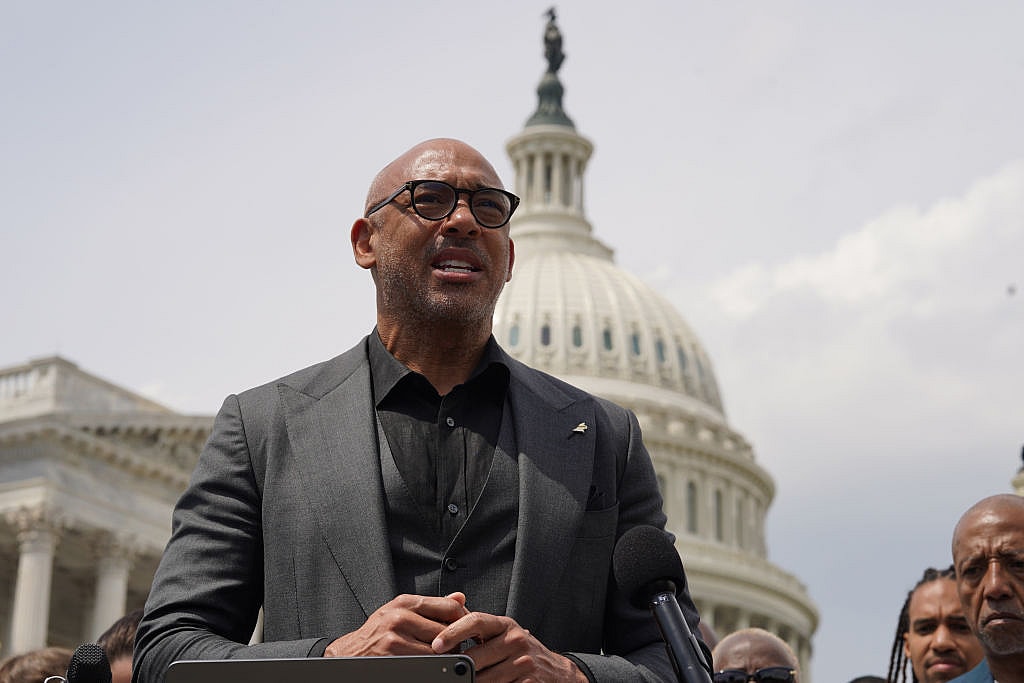The implementation of artificial intelligence (AI) into music creation and the music business has reached a new, polarizing plateau.
Earlier this week, an incognito producer named Ghostwriter submitted his song, “Heart on My Sleeve, for consideration at the next Grammy Awards, according to Variety. The song features AI-generated music and vocals from Drake and The Weeknd.
Initially, Harvey Mason Jr., CEO of the Recording Academy, stated earlier this week that a song featuring AI-generated vocals could be eligible as long as the song is written by a human and not AI, according to the New York Times. Many people expressed concern about the direction of the music after news of Ghostwriter’s submission.
On Friday, Mason cleared up any confusion by insisting that “Heart on My Sleeve” is not, in fact, Grammy-eligible. He posted a video statement via Instagram to explain why the song, which was submitted for Song of the Year and Best Rap Song, is being rejected.
“Even though it was written by a human creator, the vocals were not legally obtained, the vocals were not cleared by the label or the artists, and the song is not commercially available, and because of that, it’s not eligible,” Mason said.
Despite Mason’s video message, his previous statement about eligibility remains a large implication of how AI will continue deepening its influence on the creation and the merit of future music. Ghostwriter’s submission is just the latest example of how the music industry has become more accepting of AI.
In 2019, Warner Music gave an algorithm a record contract. The label signed Endel, a Germany-based mood music app, to a record deal, according to The Guardian. Endel creates personalized soundscapes for users, and Warner signed it to create 20 original albums, releasing five that year alone.
Last year, Capitol Records made history by signing FN Meka, a computer-generated rapper, to a record contract. The label terminated the contract days later after backlash about FN Meka’s overtly perpetuating negative Black stereotypes, offering its “deepest apologies to the Black community for our insensitivity in signing this project without asking enough questions about equity and the creative process behind it.”
Even with Capitol’s apology, there’s no guarantee that an AI-generated musician won’t receive a contract from another label in the future.

In 2001, Blur frontman Damon Albarn created Gorillaz, a fictional, animated rock band that achieved chart success with songs like “Clint Eastwood” and “Feel Good Inc.,” and continues to release new music and tour. Therefore, a hit-making AI-only artist may still be around the corner. Wu-Tang Clan rapper GZA uncovered Georgia Tech scientists creating machines that play instruments on his 2017 Netflix docuseries, “Liquid Science.” With technicians making robots that can improvise music with internal thought processing, using AI-generated voices on songs intended for mass consumption is not a far-fetched idea.
Timbaland told Forbes in May that he plans to champion the evolution and legitimacy of AI software that makes new music. After posting a song he produced featuring AI-generated vocals from the late Notorious B.I.G., the Grammy-winning producer announced he’s made a start-up company that will advance the technology as the industry sorts out the legal ramifications of copyrights.
“It’s going to really be a new way of creating and a new way of generating money with less costs,” Timbaland said. “I’m already here. This is what I’m doing. I’m going to lead the way.”
Right now, people are having fun with humorous social media posts of deceased jazz vocalists singing profane hip-hop songs from the 2000s (e.g. Frank Sinatra singing Lil Jon’s “Get Low”). But Timbaland hopes AI filters that replicate the voice and tone of another artist — living or deceased — can be developed and utilized by other producers and accepted by fans and critics.
Quincy Jones once said the key to success when creating music is the right balance between soul and science. Soul meant the acutely wonderous imagination of the people involved in the creation of the music (artists, songwriters, producers, musicians). Science meant the utilization of the available technology at the disposal of the creatives.
Today, with AI becoming more prevalent in music, it’s now a question of soul vs. science.
TheGrio is FREE on your TV via Apple TV, Amazon Fire, Roku and Android TV. Also, please download theGrio mobile apps today!

